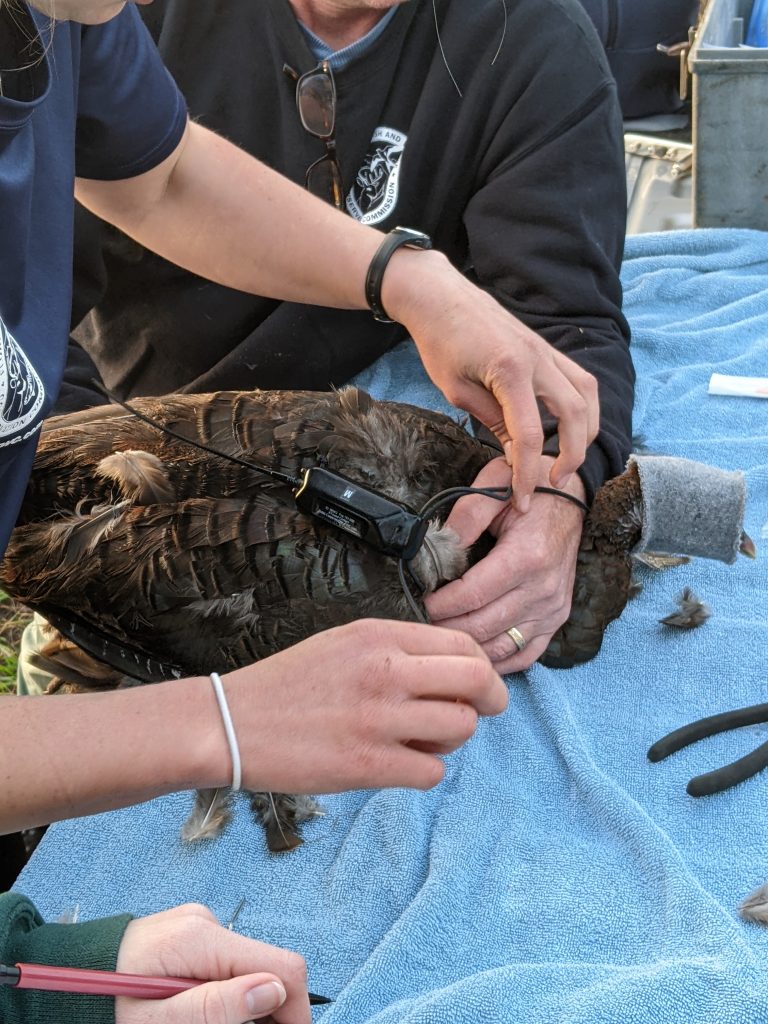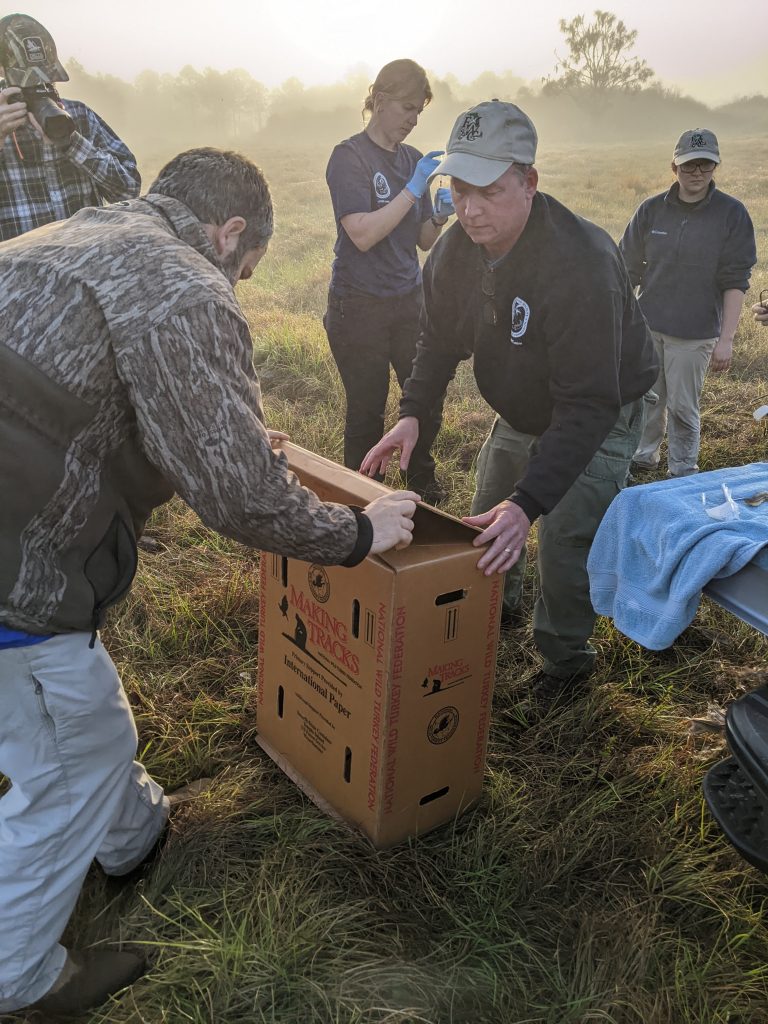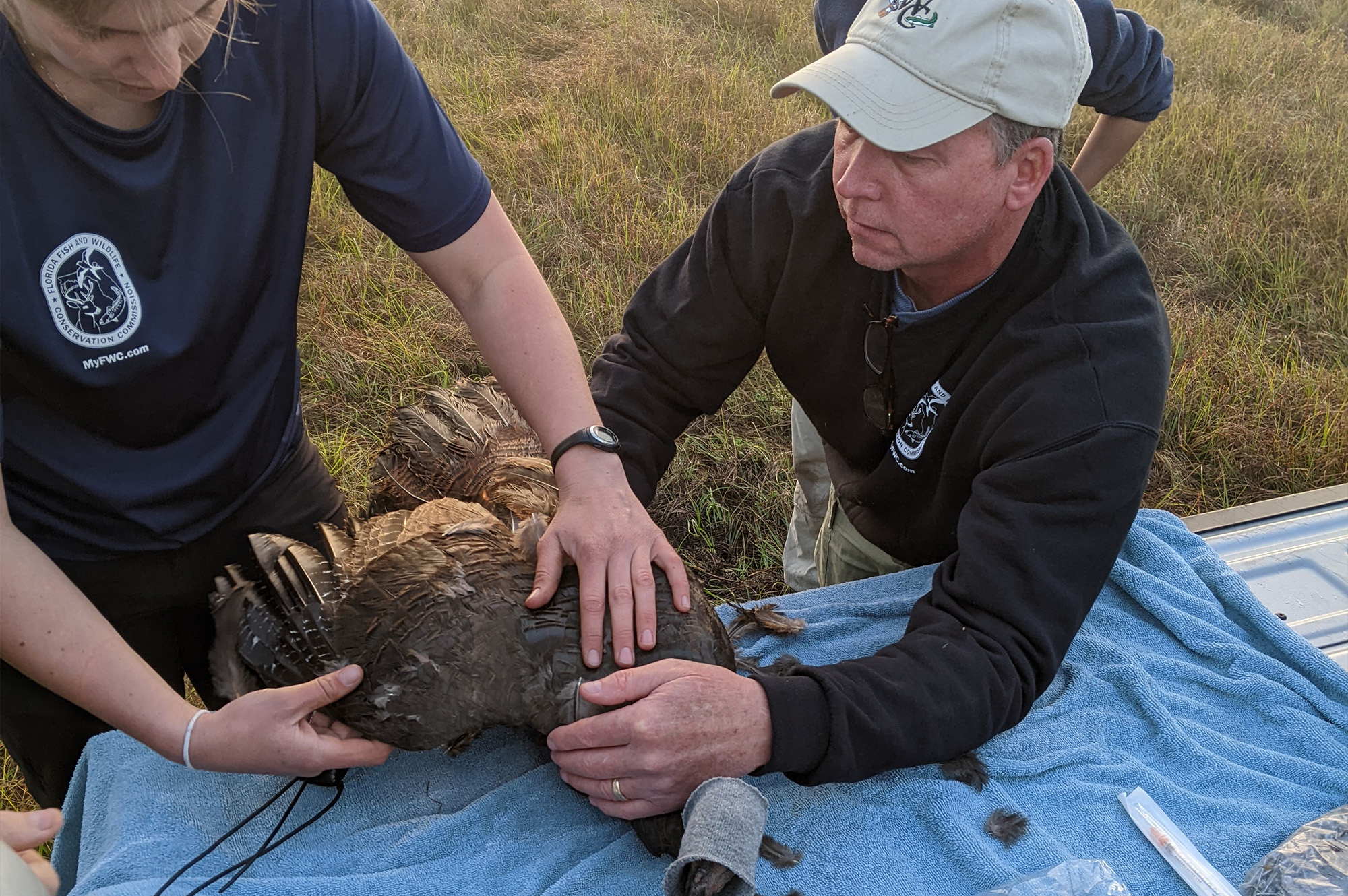New Wild Turkey Research in Osceola Country
The NWTF Florida State Chapter Helps Fund New Wild Turkey Research.
The Florida Wildlife Commission is adding to its body of information about wild turkeys by conducting a three-year research project in south Florida to learn more about when and how often gobbling occurs.

Another facet of the study, which begins this spring, will be to examine nesting activity. The goal of this research is to determine the relationship between gobbling, nesting and hunting season dates to ensure Florida’s spring turkey season is set to maximize hunter satisfaction and the sustainability of Florida’s wild turkey population.
This project expands on a 2014-2017 study with the same goals conducted at sites in north and central Florida. Like the earlier study, automated recording devices will be strategically placed to pick up gobbling at Okaloacoochee Slough WMA in Hendry County and DeLuca Preserve in Osceola County. In addition, wild turkey trapping at those sites will allow biologists to get some basic information (weight, size, age, sex, etc.) about each bird. In addition, they’ll band all captured birds and outfit a select number of hens with GPS transmitters. Biologists will regularly check in with hens that received GPS transmitters to monitor nesting behavior including when and how many nests are initiated and the outcome of the nesting effort.

Hens will also be tested for lymphoproliferative disease virus. First identified in 2009 in Arkansas, this disease can cause wild turkeys to develop tumors in the spleen, liver and other organs and on their skin. Testing for LPDV as a part of this study will provide biologists with the opportunity to assess whether it affects wild turkey reproduction rates.
This research project is the result of a partnership between the FWC and the University of Florida. It is funded by the money generated from the sale of turkey permits, which are required to hunt wild turkeys in Florida (unless exempt) as well as contributions from the Fish & Wildlife Foundation of Florida and Florida State Chapter of the National Wild Turkey Federation. It is part of several other efforts through the FWC’s wild turkey management program to better understand wild turkey distribution and abundance, nesting success and brood survival, and hunter satisfaction, effort and success.
“Our volunteer leadership in Florida understands the integral role research plays in guiding proper management decisions, which ultimately lead to the sustainability of the wild turkey in Florida,” said Ricky Lackey, NWTF district biologist for Florida, Georgia and South Carolina. “In addition to the $90k the Florida State Chapter is allocating to wild turkey habitat projects in 2023, they are contributing significant funds to this new wild turkey research to ensure our favorite game birds is thriving in Florida.”
